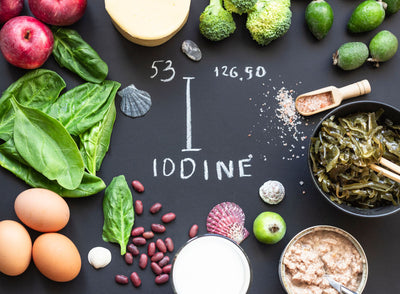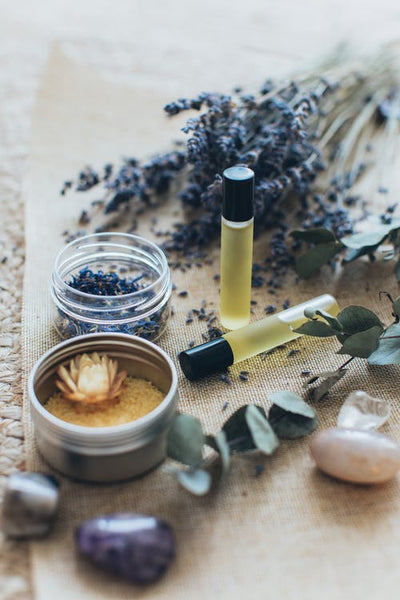Join me for a moment as we ponder a simple question: “What are the most important factors that help you maintain good health?”
I recently asked a small group of health conscious friends how they would answer that question. I received significant pushback from most of them saying they couldn’t limit it to just three. But here is a list summarizing their answers: organic food, sleep, clean water, avoiding toxins, movement/exercise, taking vitamins, minerals and other supplements, exposure to sunshine, limiting sugar intake, maintaining good relationships, prayer or meditation, getting regular blood work and a good doc to interpret test results. Did you find your three answers in that list?
I was a little surprised that regular detox was not mentioned, but otherwise their lists mirrored mine closely. But then I did some very interesting reading on that simple element of life, called OXYGEN! We know people can survive quite a while without food. We know people can survive about three days with no hydration. But when the body is starved of oxygen, most people only survive four to six minutes! Let that soak in….4-6 short minutes. That's hardly time to watch a commercial break or fold a load of towels. That alone should tell us the importance of oxygen! Good oxygenation has got to be King Of The Hill on the Mountain of Healthy Living.
What Does Oxygen Do?
Let’s briefly review some of the specific roles oxygen plays in the body. Dr. Mark Sircus, in his book Anti-Inflammatory Oxygen Therapy, provides us with a list of benefits that oxygen provides. Below are just a few of the key benefits he lists in his book.
- Oxygen increases energy, improves sleep, and increases the quality of our lives.
- Oxygen decreases inflammation thereby reducing pain and minimizing tired muscles.
- Oxygen destroys harmful bacteria, viruses, candida, parasitic infections, and mycotoxicosis.
- Oxygen increases circulation thereby speeding up blood to capillaries, decreases viscosity and separation of red blood cells, supports peripheral vascular disease and arrhythmia.
- Oxygen detoxifies the body and is especially helpful with environmental hypersensitivity.
- Oxygen improves lung function and improves the ability of red blood cells to pass on oxygen to other tissue in emphysema, asthma, and chronic bronchitis.
- Oxygen promotes anti-aging and rejuvenation by increasing oxygen delivery to cells, tissue, and organs.
- Oxygen stimulates the immune system.
- Oxygen aids in wound healing.
- Oxygen supports healthy sexual function.
If oxygen can provide our bodies with so much healing and restoration, why do we give so little attention to the topic of how to well oxygenate ourselves? The most likely possibility is that we take oxygen for granted. Breathing is part of our autonomic nervous system, meaning we do it without conscious effort. We honestly don’t realize we need to work on proper breathing! Another good possibility is we automatically assume that we have plenty of oxygen in our bodies. A third reason is we do not realize just how critical it is to our health, so we put forth no effort to increase the oxygen in our bodies. Sadly, all three of those subconscious thought patterns can lead us to poor health and eventually death. We develop poor breathing habits usually because of stress, pain, or busy lifestyles. We often hold our breath or don’t breathe deeply enough resulting in decreased oxygen levels and cells starved for the energy they need. The sad part is we don’t even recognize that this is happening. We also have not been taught about how our oxygen levels are currently affected by toxins and pollutants in our environment and in our food. It is doubtful any of us know the role active oxygen (O1) plays in eliminating free radicals and pathogens.
Just like well-tuned engines, our bodies are designed to function optimally with a certain amount of oxygen and clean fuel (food, water). As long as those are in balance, we produce energy to work, play, heal, and thrive. But when those critical elements get out of balance due to the onslaught of pollutants and toxins in our air, food and water (along with our sedentary lifestyles) our engines fail us. Drugs of all types, surgeries, travel, acidic conditions, smoking, extensive burns, and alcohol consumption are also contributors to low oxygen in the body. In fact, one molecule of alcohol kills three molecules of oxygen! Toxic-rich and oxygen-poor environments produce disease. And unlike the train in the old children’s book, The Little Engine That Could, a positive attitude can’t fix our stagnant, sick bodies. Our “little engines that could” simply just can’t any longer without proper oxygenation.
Ed McCabe, known as Mr. Oxygen, has spent his career studying oxygen and has dedicated much of his life to teaching others about the importance of oxygen and oxygen therapies. In his book, Flood Your Body With Oxygen, Mr. McCabe states the following: "Your cells need oxygen; they need it all the time. If you do nothing and allow the cells to continue becoming covered with garbage, you are simply letting needed oxygen be blocked from getting into the mitochondria. If this garbage piling up continues to such a degree that eventually 60 percent of the oxygen needed by the cell is not there, then that cell will be so damaged by the lack of oxygen that it’s respiratory mechanism and enzymes cannot function." Mr. McCabe goes on to say, “But our bodies are programmed to survive. So when the cells can’t breathe anymore, in order to stay alive they mutate and drop 31 steps in evolution down to the level of a plant type cell that just grows and grows and grows. To live in no or low oxygen conditions, they lose all their higher functions; they are no longer regulated members of the organized body community. They no longer make hormones, no longer digest your food, and no longer heal whatever part of the body disease has settled into. We need to breathe, and so do your cells, but because they can’t get the oxygen necessary to breathe, they mutate into a simple survival mode.”
Oftentimes, we feel like we are just surviving, don’t we? Our energy is low, we don’t feel well, we’re not digesting food well, we have no reserves after work to exercise, our sex drives are below par, our muscles are fatigued, our heads hurt, and we may even be depressed. There is always a root cause for why we feel poorly, and low oxygen levels are frequently involved. Simply put by Dr. Sircus, “Starved of oxygen the body will become ill, and if this persists we will die.” Dr. Arthur Guyton says it this way, “All chronic pain, suffering and diseases are caused from a lack of oxygen at the cell level.” We might think those are exaggerated claims until we imagine an image of a nasty fish tank! The water is murky and stagnant, brimming with bacteria, viruses, fungi, unbalanced pH and waste material. We can easily see those poor fish are deprived of oxygen. Now translate that image to the inside of our polluted and toxic bodies. Our hypoxic cells are begging for an environment change and oxygen just like those fish. To put it harshly, we flail about for years, swimming sideways in our own toxic soup of poor health until we, like those little fish, go belly up.
How Can We Reverse The Damage?
If a lack of oxygen is deadly to our cells and most of us are indeed oxygen deprived from poorly grown food, pollutants in our environment, poor water quality, drugs we’ve taken, stress we undergo, alcohol we consume as well as many other factors, then what do we do to reverse this damage? It’s time we sign ourselves up for “breathing boot camp!” But first here are a few more general facts about oxygen straight from Dr. Sircus’ book Anti-Inflammatory Oxygen Therapy:
- Oxygen cannot be stored in sufficient quantities for more than a few minutes. We must continually replace it.
- At rest the blood holds about a quart of dissolved oxygen that the cells continually use to produce energy.
- People with the worst breathing habits are generally people who do not exercise.
- Ideal breathing corresponds to very slow, diaphragmatic breathing as opposed to shallow chest breathing.
- The average adult breaths between 15 and 20 times per minute, but 10 or fewer breaths per minute are strongly associated with good health.
- Cancer and severely ill patients tend to breath rapidly at rates of 20 breaths per minute or higher.
- Lack of oxygen seriously ages our cells.
- Most 50 year olds have lost 40% of their lung capacity. At 80 years old, most have lost 60%.
- Magnesium supplementation can help the body’s oxygen carrying capacity. Sodium bicarbonate when added to water in moderation can also help.
- The number one cause of blood congestion, general inflammation and lower oxygen delivery to the cells is sugar.
- The Framingham studies (5,000 patients over 30 years) determined that both long-term and short-term mortality could be predicted simply based on people’s breathing capacity.
Where do I start?
Below are the most basic “breathing boot camp” suggestions to give your cells much needed oxygen. We can start many of these today! There is no good excuse why we can’t increase our oxygen. (We will dive into more aggressive, oxidative therapies at another time.)
- As with any health issue, start with a clean diet, clean water supply and clean air to breathe. Eat raw organic foods because they contain more oxygen than cooked foods.
- Stop eating sugar! Also avoid smoking, radiation, pollution, alcohol, medications, and pesticides.
- Detox often!!! Use a sauna, biomat, Bemer, PEMF, or detox baths regularly to unload toxins.
- Exercise! Yoga and Pilates are both excellent at incorporating deep breathing into their programs. Almost any martial art emphasizes breathing, so there are many choices. If you do not have a gym available, you can still access information through apps on your phone or by looking up videos on YouTube.
- Meditate or pray using slow deep breathing techniques.
- Use magnesium!
- Take magnesium supplements.
- Take Epson’s Salt baths.
- Rub magnesium oil on your body. If you find it makes you itch, leave it on for 15-20 minutes, then wash it off in the shower. Your body will have absorbed the magnesium by then.
- Soak your feet in very hot water with magnesium oil.
- If you get massages, have the therapist use magnesium oil on you during massage.
- Begin practicing diaphragmatic or slow, deep breathing. If you do not know how to do this, YouTube has a myriad of videos that you can watch and follow along simply by typing in “diaphragmatic breathing.” The idea is to breath deeply, slowly filling the lungs and then slowly exhaling. Many people follow Nicole Rager on Youtube for learning breathwork.
- Consciously plan times in your day to practice slow deep breathing, whether it be at traffic lights, during a work break, or when you lie down at night. Your adrenal glands will appreciate the help.
- Purchase a simple breathing trainer from Amazon if you need extra help with increasing your capacity.
- Invest in a book to help you learn more about breathing in a healthy manner. Perfect Breathing: Transform Your Life One Breath at a Time by Don Campbell and Al Lee is a good place to start.
- Clean up the air in your environment. Use an air purifier sufficient for your living space or open your windows to allow in fresh air. Small, portable air purifiers can also be purchased to use at home, the office, or in your car and are also perfect for hotel use. Therasage has a small purifier called Thera O3.
- Detoxify your lungs with the use of essential oils on the chest, throat or the tip of your nose. Add mucous busting herbs and spices to your diet such as turmeric, ginger, clove, and mint according to David Benjamin King. Also add thyme, oregano, and sage in teas and foods. They can also be vaporized or used in an oil diffuser.
- Improve the microbiome of your nose. Two products to consider are Ion Sinus Support (a simple nose spray) and Lanto Sinus, a probiotic that can be used inside the nose.
- Add O2 producing plants to your home such as aloe vera, palms, snake plants, and English ivy. They also soak up toxins.
- Connect with nature. Find time daily to be outside preferably in the woods or some type of green space to increase oxygen in your body.
In that memorable movie, The Karate Kid, Mr. Miyagi eloquently stated the importance of oxygen to his student, Daniel Larusso.
"Wax on, right hand.
Wax off, left hand.
Wax on, wax off.
Breathe in through your nose,
Out the mouth.
Wax on, wax off.
Don’t forget to breathe!
Very important!"
Mr. Miyagi had learned a secret to good health, mental, and physical energy. We can, too, as we go about our activities. After all, it’s just right under your nose!
Sources:
Anti-Inflammatory Oxygen Therapy by Dr. Mark Sircus
Flood Your Body With Oxygen by Ed McCabe
The Power of Hydrogen Peroxide by Mary Wright
Hydrogen Peroxide, Medical Miracle by William Campbell Douglass II
Dr. David Benjamin King, Ozone Conference Lecture






